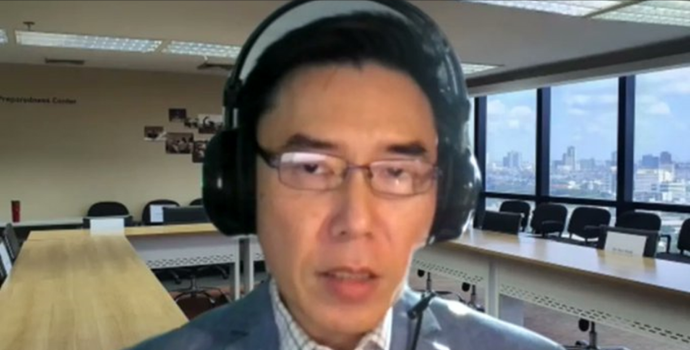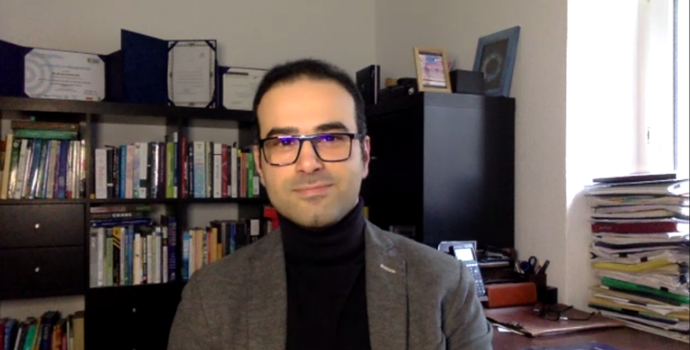- About Us
-
Who we are
-
- Publications
-
- ADPC Academy
-
MediaADPC'S NEWS
Putting climate-resilient road infrastructure on the right track Putting climate-resilient road infrastructure on the right track
14 Mar 2022
Bangkok, Thailand
.png) ADPC transport experts tuning into the webinar to share their remarks and findings
ADPC transport experts tuning into the webinar to share their remarks and findingsADPC organized a webinar on ‘Climate-resilient Road Infrastructure: Getting the Strategies and Designs Right’ to integrate climate change risks into road asset management.
Over 50 participants tuned in from across the world tuned in to learn about the concept of resilience in the transport sector based on practical evidence, relevant literature, and international best practices.
The webinar was moderated by Ms. Sk. Naureen Laila, Resilient Transport Specialist, ADPC Bangladesh.

Dr. Peeranan Towashiraporn, Director at ADPC, delivering his welcoming remarks
Dr. Peeranan Towashiraporn, Director at ADPC, explained in his welcoming remarks that roads and bridges in South Asia continue to be affected by climate extremes such as heavy rains and landslides.
‘Increases in precipitation and temperature will continue to deteriorate roads and operations of transport assets over time,’ he said. ‘We must work together to ensure that policies and investments in the transport sector account for climate change,’ he added.

Dr. Milad Zamanifar, Regional Transport Specialist, ADPC, presenting on the concept of transport resilience.
Dr. Milad Zamanifar, Regional Transport Specialist, ADPC, analyzed the concept of resilience and linked it to the impacts of climate hazards on transport infrastructure.
Dr. Milad cited that flooding causes an estimated US$ 9.6 billion of damage to roads and rails worldwide every year. ‘Flooding leaves its adverse impact on the structural capacity of the road pavement system until up to 3 years after inundation,’ he added.
Viewers had a chance to ask about key issues in existing road standards in South Asia which include poor integration of climate stressors and lack of guidelines for engineers.
Mr. Md. Nurul Alam, Resilient Infrastructure Specialist at ADPC, provided examples of evidence generation and decision-support system activities from Climate Adaptation for Resilience (CARE) for South Asia and SERVIR-Mekong projects in his closing remarks.
The webinar was organized as part of ADPC’s CARE for South Asia project supported by the World Bank.
Watch the full webinar below:
Latest NewsRelated Trainings
-